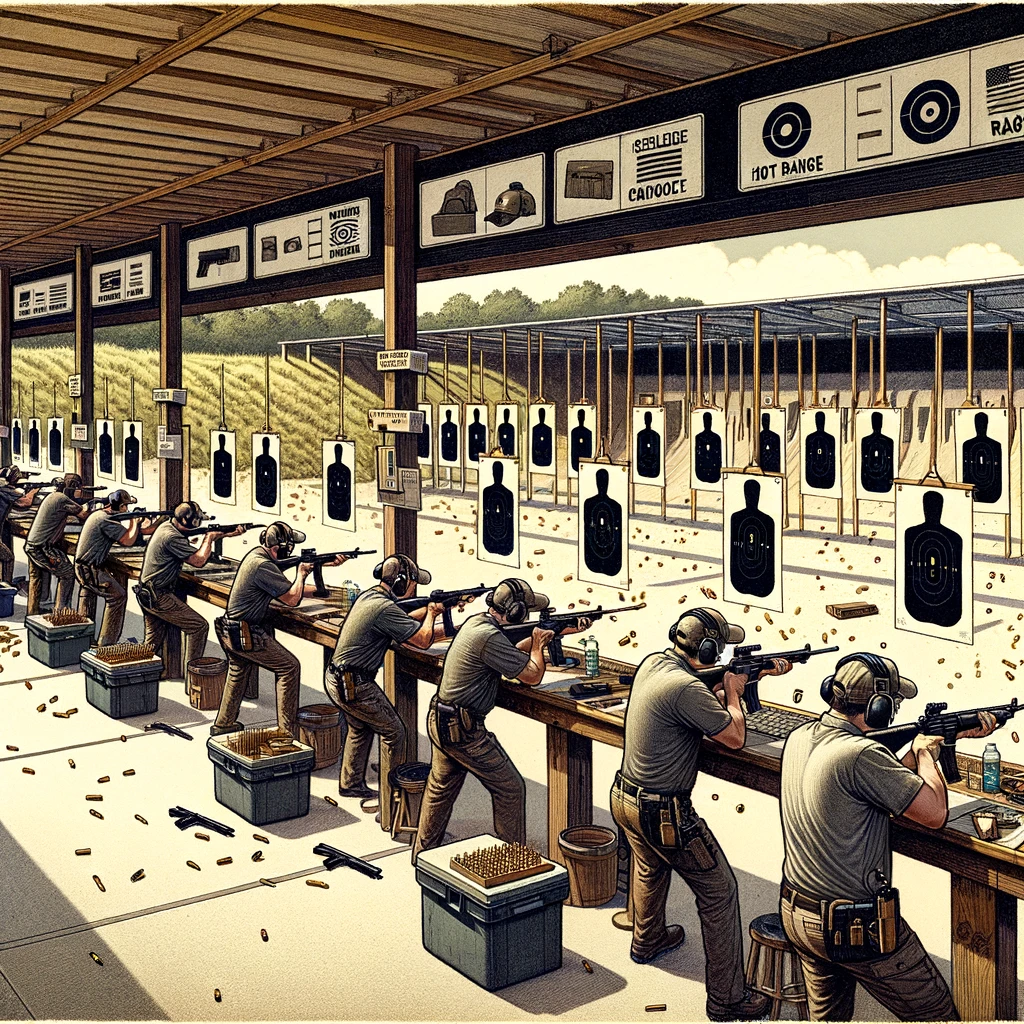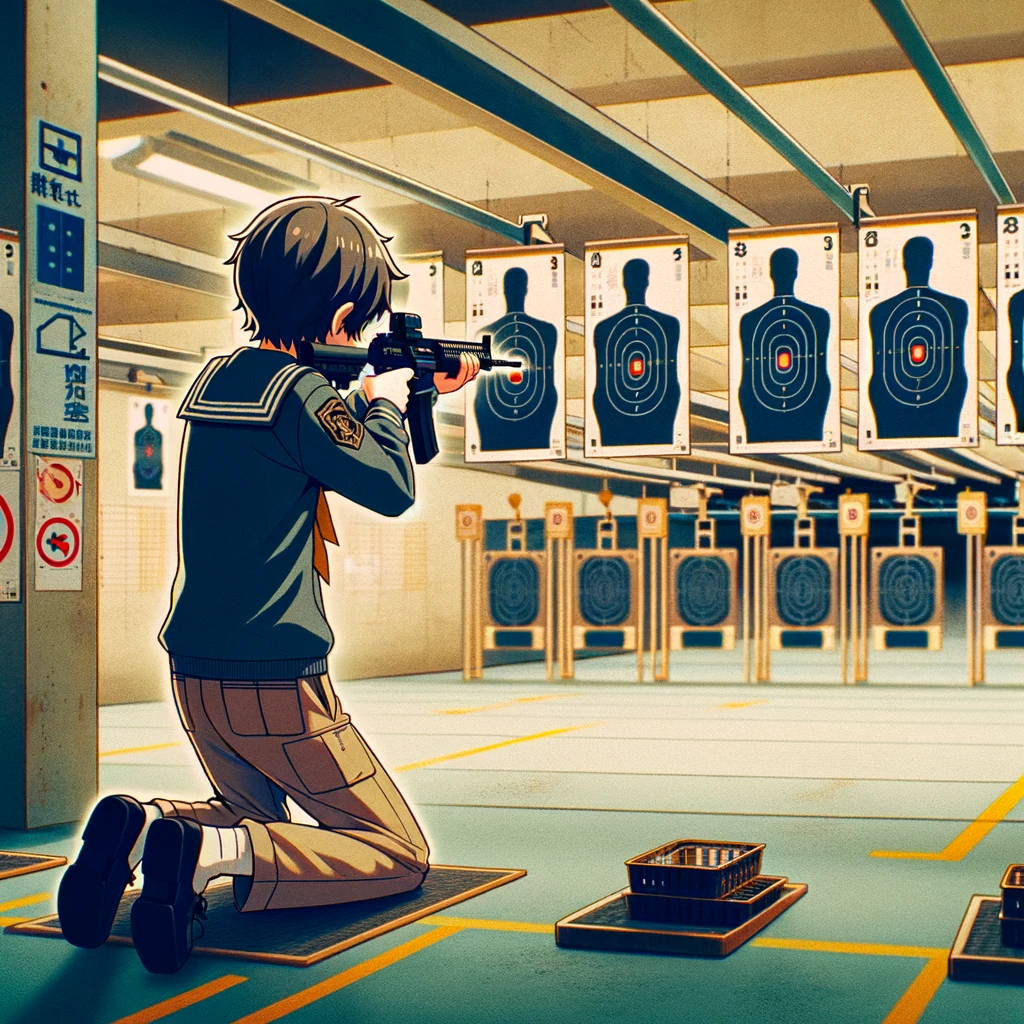# ambivalence /æmˈbɪvələns/ adj.
Someone who shows ambivalence about a person or thing has conflicting feelings.
If you love your mom but find her totally embarrassing, you might feel ambivalent about having her give a presentation at your school.
We are both somewhat ambivalent about having a child.
O'Neill had a genuine ambivalence toward US involvement in the war.
Originally a psychological term, ambivalence was borrowed from the German word Ambivalenz, coined in 1910 by the Swiss psychologist Eugen Bleuler.
The German word was formed from the Latin prefix ambi- "in two ways" plus Latin valentia "vigor, strength."
Associate "ambivalence" with the feeling of being torn between two choices, like deciding between two equally appealing options.

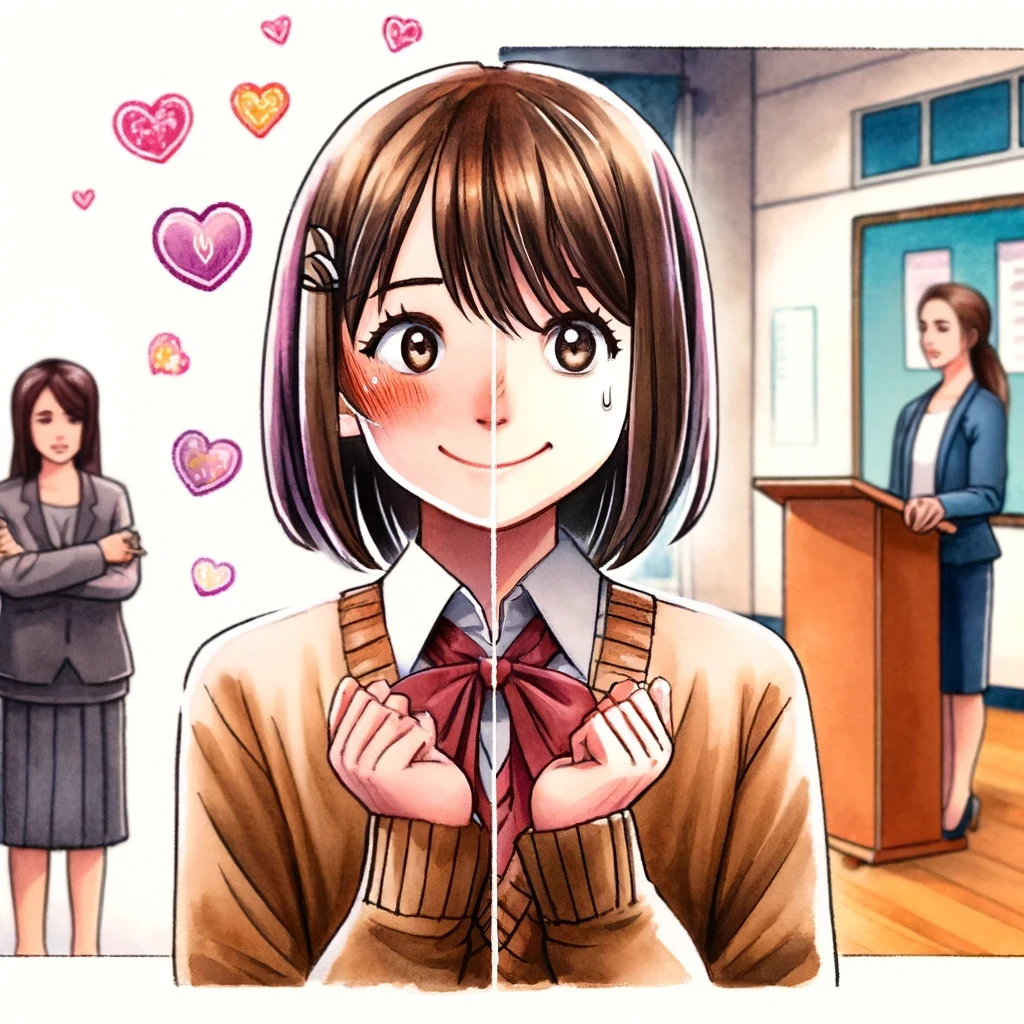

- Word Origin
- "Ambivalence" comes from the Latin word "ambi-" meaning "both" and "valentia" meaning "strength." This origin can help you remember that ambivalence involves having strong but opposing feelings or thoughts.
- Mnemonic Device
- Think of "ambivalence" as "ambi-" (both) and "valence" (values). Imagine a person being pulled in two different directions by opposing values or feelings.
# conflict /ˈkɒnflɪkt/ n. /kənˈflɪkt/ v.
A conflict /ˈkɒnflɪkt/ is a struggle or an opposition. If you and your best friend both fall in love with the same person, you will have to find some way to resolve the conflict.
Conflict comes from the Latin word for striking, but it isn't always violent. Conflict can arise from opposing ideas.
If you want to turn your empty lot into a community garden but your wife envisions a shooting range, you have a conflict.
If you're torn between two different desires, you're conflicted.
Conflict can also be a verb.
If you schedule a dentist appointment that conflicts /kənˈflɪkt/ with a meeting, you'll have to cancel one of them.
Associate "conflict" with a heated argument or a battle scene. When you think of conflict, think of intense disagreement or struggle.

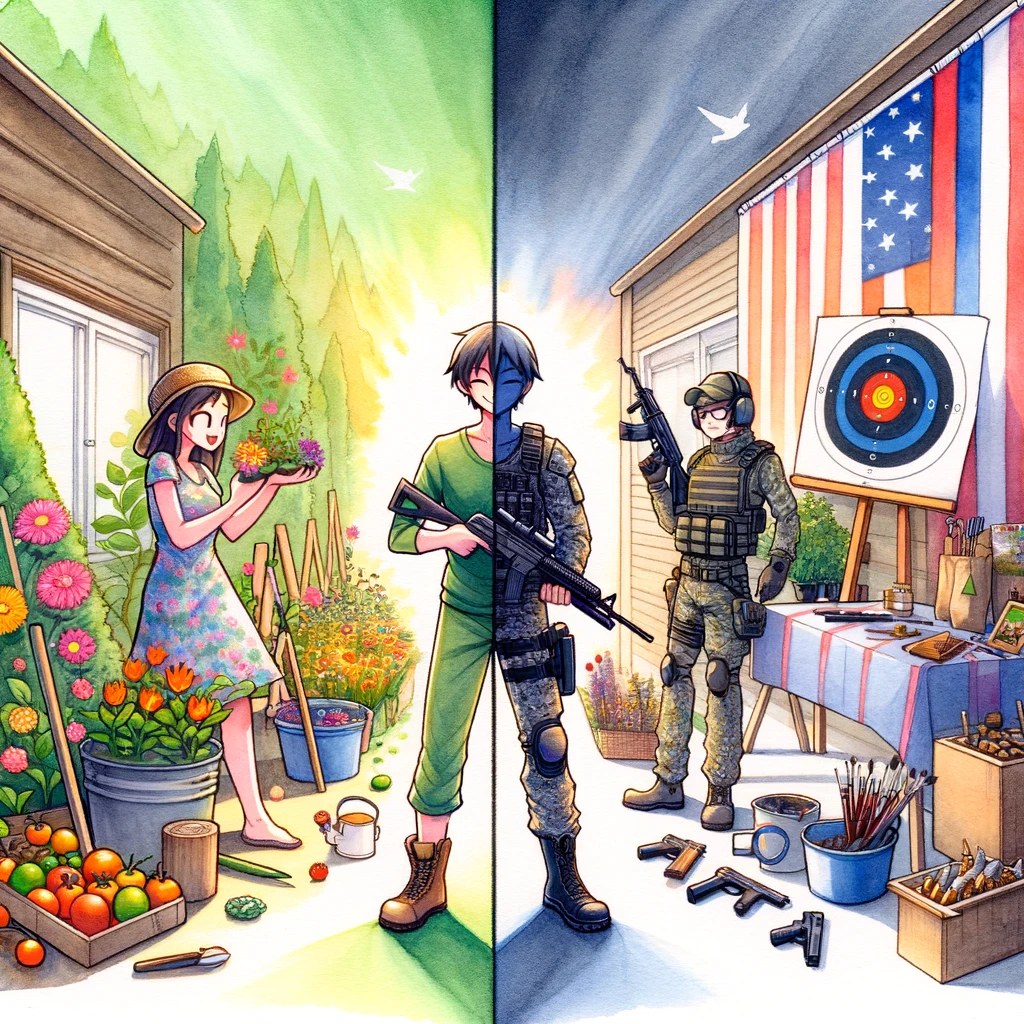


- Word Origin
- "Conflict" comes from the Latin word "conflictus," meaning "a striking together." This origin can help you remember that conflict involves opposing forces or ideas clashing.
- Mnemonic Device
- Think of "conflict" as "con" (together) and "flict" (fight). Imagine two ideas or people coming together and fighting.
# violent /ˈvaɪələnt/ adj. ●●●
Something that's violent involves physical force or emotional intensity. If you hate violent movies, it means that you don't want to watch scenes of people being hurt or killed.
Physically violent behavior ends in someone getting hurt or something being destroyed or damaged.
You can also have violent emotions, like a violent burst of anger toward the slow driver in front of you, and you can use violent to describe something that's visually intense, like a violent orange-colored minivan.
The violent storm caused widespread damage.
The word has gained in force since developing from the Latin word violentia, which means "vehemence or impetuosity."
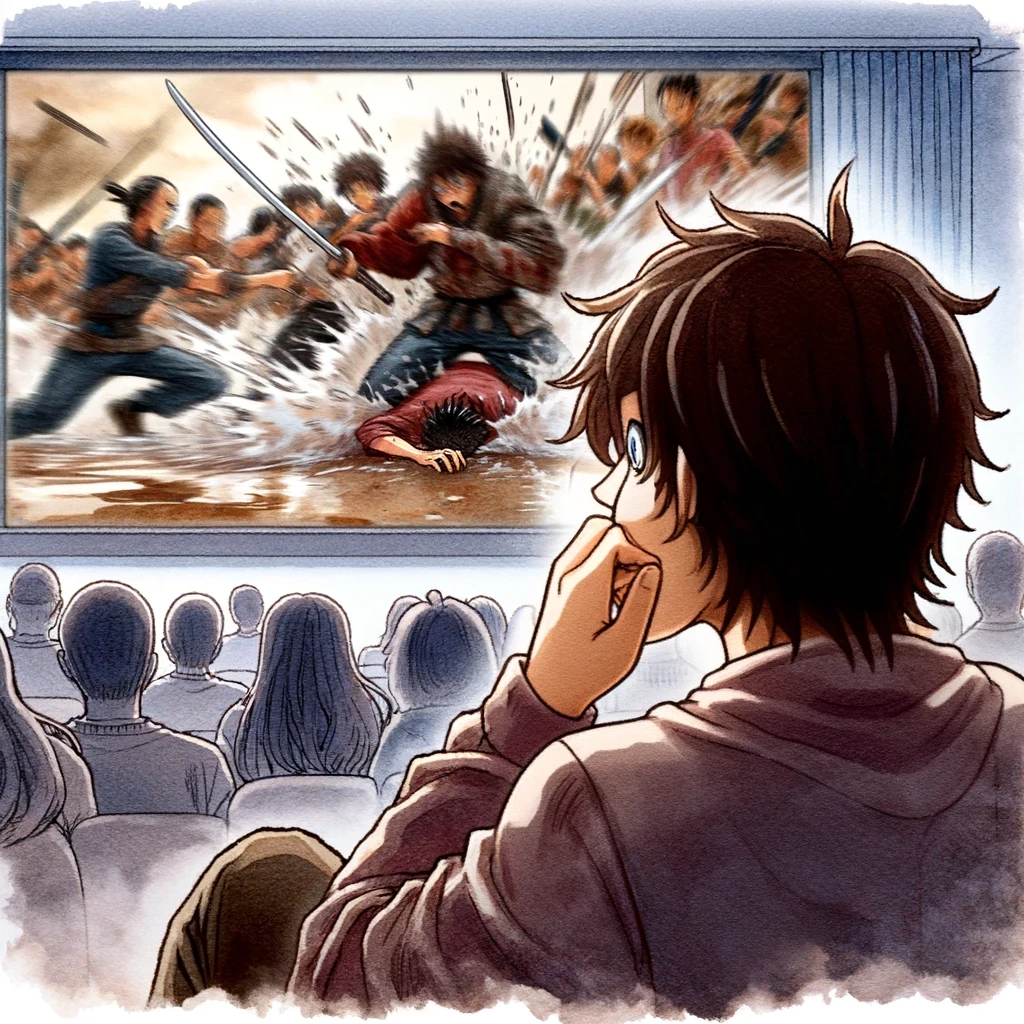



- Word Origin
- "Violent" comes from the Latin word "violentus," which means "forcible, vehement." This origin can help you remember that violent actions involve strong physical force.
- Mnemonic Device
- Think of "violent" as "vi-o-lent." Imagine "vi" (visual) + "o" (over) + "lent" (lent strong force). Visualize an action that is overly forceful and aggressive.
# envision /ɪnˈvɪʒən/ n.
The verb envision means to imagine or picture. Kids often envision themselves doing exciting things when they grow up, like being movie stars, professional athletes, or astronauts.
The word envision comes from the Latin en-, which means "cause to be," and visionem, meaning "a thing seen."
Career paths aren't the only things that can be envisioned.
If you envision a cleaner world, you may volunteer to pick up trash on the beach.
If you envision a more peaceful world, you might make your brother and sister play in separate rooms to stop them from screaming at each other.
Associate "envision" with daydreaming or planning for the future. When you envision something, you are imagining what it could be like.



- Word Origin
- "Envision" comes from the prefix "en-" meaning "in" and "vision" meaning "sight." This origin can help you remember that envisioning involves seeing something in your mind.
Mnemonic Device: - Think of "envision" as "in-vision." Imagine something appearing inside your mind's eye, creating a mental picture.
# shooting range
A shooting range is a specialized facility designed for practicing shooting with firearms or archery equipment. It provides a controlled environment where individuals can safely practice marksmanship. Shooting ranges can be indoor or outdoor and are equipped with targets at varying distances, backstops to catch bullets, and often include safety features such as shooting booths and hearing protection.
Here are some key phrases related to shooting ranges:
- Firing Line: The designated line where shooters stand and fire their weapons.
- Targets: Objects or images placed downrange for shooters to aim at.
- Backstop: A barrier behind the targets designed to stop bullets.
- Range Officer: A person responsible for safety and enforcing rules at the range.
- Cease Fire: A command to stop all shooting immediately.
- Hot Range: Indicates that shooting is actively happening.
- Cold Range: Indicates that no shooting is happening and it's safe to go downrange.
